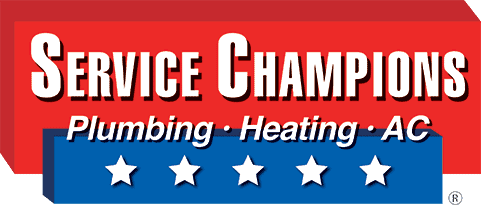Why Should I Get a Plumbing Inspection?
Homeownership comes with a lot of responsibility. You have to keep up with the maintenance in and around your house, which includes your plumbing system.
Though it may not be as obvious as your roof or your landscaping, your plumbing system is an important part of your day-to-day life. It’s not enough to keep up repairs or problems as they happen. You have to get ahead of them with regular inspections.
Find out more about plumbing inspections, why they’re important, what to expect from the process.
Why Plumbing Inspections Are Important
Home inspections are a standard part of buying a home, but they tend to be on the surface.Inspectors aren’t looking into your walls and floors to see if your pipes are in good condition and to make sure there aren’t leaks, unless there’s obvious water damage.
If you’re buying a house, a plumbing inspection is a must to ensure that you’re not stuck with expensive repairs. Make sure you have a full inspection before you sign on that dotted line. Likewise, if you’re selling a home, you should get a plumbing inspection before listing. When you have this documentation to verify that your home has been maintained and the plumbing is in good condition, buyers have peace of mind. These aren’t the only times you should have a plumbing inspection, however. This routine process should be part of your home’s regular maintenance to protect your investment and keep your home safe.
Find Hidden Issues
Plumbing inspections help you find the hidden issues that may be lurking in your walls. Small issues, such as a tiny crack or dripping spot can become significant water damage, and you often don’t realize until it affects your walls and flooring.
Financial Savings
If you’ve ever had to pay for a plumbing repair, you know it can be an expensive fix that could go into the thousands of dollars. If you can take care of those leaks or repairs when they’re small, they’re much cheaper and more convenient.

Conversely, waiting until problems are serious means you might have to wait for an appointment with a professional. Worse yet, you may end up with an emergency with only one plumber to call, and emergency calls are often much more expensive than a routine visit.
Who Can Do a Plumbing Inspection?
Most homeowners can handle minor plumbing issues like a leaky faucet or a constantly running toilet, but there’s much more to your plumbing than that. Instead of attempting a plumbing inspection on your own, work with a professional plumber or licensed plumbing company. They have the tools and expertise to ensure your system is in good condition.
What to Expect with a Plumbing Inspection
Plumbing inspections can involve different tasks based on your home, but they generally include:

Inspections of Plumbing Components
Your plumbing components are a big part of your inspection. The plumber will check your sinks, tubs, toilets, showers, pipes, and supply lines for issues like loose fittings, cracks, leaks, wear and tear, and more.
Inspections of Your Outdoor Plumbing
Any outdoor components of your plumbing system will also need to be checked, which includes hoses, pool components, or irrigation systems. The plumber will check that these components are in good condition and have adequate protection against the elements.
Water Heater Inspection
Water heaters are one of the most expensive appliances you have and a crucial part of your plumbing system. Plenty can go wrong, from a slow drip to a burst that leaves your water heater vulnerable to an explosion. Plumbing inspections always include a checkup of the water heater’s connection points, release valves, and other components.
Inspection of Your Sewer Line
The sewer line is another vulnerable area of your plumbing system that can wreak havoc if it’s not maintained. Your inspection will include a check of your main sewer line to look for signs of damage, such as cracks or misalignment, that can lead to a collapse or breakdown.
How Often Should I Have a Plumbing Inspection?
If you’re buying or selling a house, a plumbing inspection should always be part of the process. It’s not enough to verify the plumbing based on visible fixtures like your tub or shower – you need to see what’s happening inside the wall.


